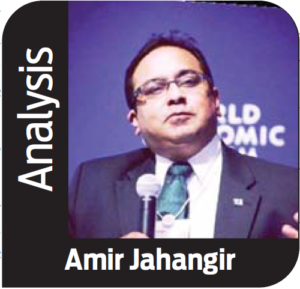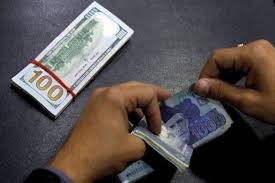 Pakistan is going through one of its toughest times in terms of fiscal and governance challenges. The country is seeking a bailout package from the International Monetary Fund (IMF). Although negotiations have been going on since last August, the fear of commitment and political fallout of the deal has been haunting not only current Prime Minister (PM) Shahbaz Sharif’s government but also the previous government of former PM Imran Khan.
Pakistan is going through one of its toughest times in terms of fiscal and governance challenges. The country is seeking a bailout package from the International Monetary Fund (IMF). Although negotiations have been going on since last August, the fear of commitment and political fallout of the deal has been haunting not only current Prime Minister (PM) Shahbaz Sharif’s government but also the previous government of former PM Imran Khan.
The government of Pakistan’s finance ministry is seeking $1 billion of an agreed $6 billion bailout programme. The agreement was signed in 2019 by the Khan government. An additional $500 million was added to the package after the devastating floods of 2022 in Pakistan. The recent staff-level meetings have been concluded and a positive response is expected from the IMF board next week.
Pakistan’s Minister of State for Finance, Aisha Ghous Pasha, recently announced in the Pakistani senate that the Pakistan Democratic Movement (PDM) government was actively engaged with the IMF regarding the agreement struck by the erstwhile Pakistan Tehreek-e-Insaaf (PTI) regime, to convince the world that there was continuity of policy in Pakistan.
Finance Minister Ishaq Dar, who had cocked a snook earlier at the IMF with statements like “I won’t take dictation (from the IMF),” and “I don’t care,” backtracked on his grandstanding and acquiesced to the IMF terms. But his delay in agreeing to the IMF’s conditions has only deepened the economic crisis.
The government has presented the Finance (Supplementary) Bill, 2023, in both the senate and the national assembly. Speaking in the senate on Friday Pasha stated that since the country’s economy was on the verge of default the leadership had to perforce take tough measures and increase taxes amounting to Pakistani Rupees (PKR) 170 billion, a target set for the next four months.
Although Pakistan will be bailed out this year and defer the default crisis courtesy the $1 billion from the IMF, along with sundry monies from friendly nations like China, Saudi Arabia, UAE, etc., it’ll be back to square one next year. Which will compel Pakistan to go back to the IMF for another bailout. This may prompt international institutions to discipline Pakistan to improve its governance and financial systems.
Pakistan needs to expedite its much-anticipated energy and refinery policy, which might induce Saudi Arabia to invest $6-8 billion in refinery projects in the country.
A gas pipeline from central Asia to Pakistan, which has been a pipe dream for over 20 years, should be turned into reality in another couple of years. This will help the country attract the right kind of global attention and a few billion Dollars to develop the necessary infrastructure, through possible joint ventures with Kazakhstan, Azerbaijan, and Russia.
To ensure accountability and transparency in the system, a more aggressive National Accountability Bureau could be reactivated, creating global trust in the Pakistani establishment to ensure that money is spent according to an agreed plan in a transparent manner.
Pakistan has to show that there is accountability for every Dollar spent, and the system should ensure the responsibility of the political leadership beyond the electoral process. This might require measures to enforce speedy justice, which would be an uncomfortable prospect for leaders across the political spectrum.
While many are still supportive of Khan’s demand for justice, however, the PTI government ’s incompetence and political impotence ensured that it failed to deliver on its promises. There are no signs of any change in the PTI leadership.
Eyeing the elections in October-November this year, the PDM government is continuously playing to the gallery and has committed an amount of PKR 400 billion (up from 40 billion last year) to ostensibly protect the poor from inflation.
The demand for structural reform has not come from the IMF only. Even China and Saudi Arabia have indicated that Pakistan needs to fix its house first, and make its economy more stable and trustworthy.
Although the government claims that the recent increase in electricity and gas tariffs would not affect small consumers, the sentiment on the street is quite different. People have openly expressed their distrust in the government and its ability to deliver any relief by way of a workable, durable economic solution.
The big question is: will Pakistan revisit its defence budget under international pressure? An increase in the defence budget will be a challenge for the PDM pressure and scarcity of resources might require some strategic realignment on part of the military.
To reap the benefits of investment in the China Pakistan Economic Corridor (CPEC), it is important to ensure that 95 percent of Pakistan’s exports are shipped by sea. To that end, in order to create a robust port infrastructure, Pakistan is taking help from China to build the Gwadar port in the south of Balochistan.
Gwadar became important post the Kargil war, when Pakistan felt the need for a military port, and the Karachi-Gwadar coastal highway was built for the purpose. Gwadar has been termed as the key trade hub for the CPEC, as it is the point where the road networks connect to the belt systems of China’s Belt and Road Initiative (BRI) map.
As of today, only three China–Pakistan Economic Corridor (CPEC) projects are under development. These are the Gwadar Smart Port City Master Plan ($4 million), the Physical Infrastructure of Gwadar Port, and the Free Zone Phase-1 (both totalling $300 million).
A Pak-China Technical and Vocational Institute ($10 million) is also planned. This project is intended to upskill locals so that they may be employed at Gwadar Port and other CPEC projects. This is an effort to get a buy-in from the local population and mitigate the risk of local alienation and resistance.
Nonetheless, a trust deficit still exists in the local population, and they feel they’re being excluded or exploited by both the Pakistani authorities and the Chinese investors.
Despite all economic effort and international assistance, Pakistan is yet to kickstart the economy. Currently, 64 percent of the nation is younger than 30 years. Pakistan now has more young people than it has ever had, and their numbers will continue to increase until at least 2050.
This is a herculean challenge for future governments as a humungous number of jobs need to be created.
The author is a global competitiveness, risk, and development expert. He is a leading strategic communication specialist. Courtesy Money control


